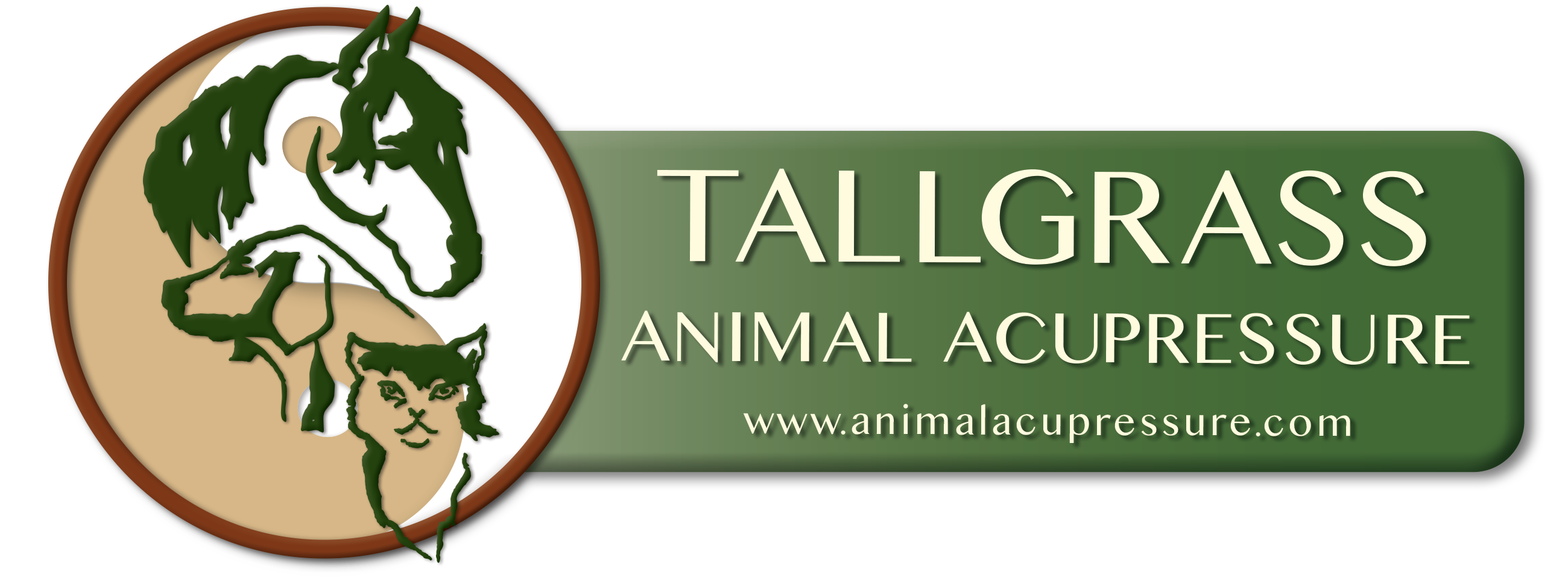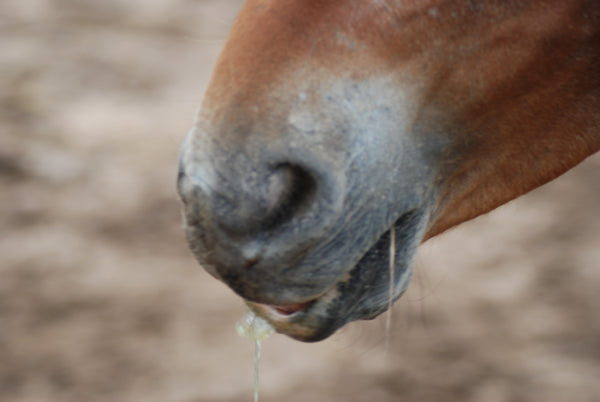In Traditional Chinese Medicine (TCM) we use an assessment technique called “The Four Examinations.” The Four Examinations are: Observation, Listening / Smelling, Inquiry or History, and Physical Palpation. This method of data collection about the animal leads to identifying a pattern of disharmony. The TCM practitioner must have highly refined, keen senses to perform each of these examinations as well as the knowledge and depth of experience to interpret his or her findings.
Recently, the Tallgrass Practitioner Google group has been chatting about odors because Danielle Flynn in Western Australia asked a good question about a dog reported to have a strong odor. Other practitioners gave her excellent responses including a list of the five odors associated with the Five-Element Theory by Margarat Nee in California.
Given the interest among the practitioners, we thought we would take a closer look at how odors can be interpreted during the assessment process. Listening and Smelling are linked in the Four Examinations possibly because they are both so immediately sensed without having to think about them. Though to interpret them, it does require a breadth of knowledge and understanding of Chinese medicine. Another reason often given for Listening and Smelling being paired is that the symbol for each is the same in Chinese.
Generally speaking, strong odors are related to heat conditions or patterns while lack of odor is indicative of cold syndromes or patterns. For instance, when you go by your garbage in the summer you’re more apt to smell it than in the winter. That said – if your horse’s manure doesn’t smell or your dog’s stool doesn’t smell, this indicates he is experiencing a cold pattern because feces are supposed to have some smell. The opposite of a cold pattern is a heat pattern and that’s when the animal’s stool has a distinctly strong odor.
Body odors can be detected in the breath, stools, urine, sweat, and discharges from orifices. From abnormal odors, trained TCM practitioners can readily identify an imbalance of yin, yang, chi, and blood-related to a specific organ from abnormal odors. Plus, they can tell if the smell indicates an excess or deficient pattern. Here are some examples:
- Bad breath may indicate indigestion, food stagnation (both are considered Stomach Heat) or a mouth infection
- Strong smelling urine may indicate Damp Heat possibly related to Bladder, Kidney, and/or the lower abdomen, and
- Foul smelling stools or diarrhea may be a clinical sign of Damp Heat in the Large Intestine.
The Five – Element Theory associations related to olfaction are as follows:
- Rancid "goatish" odors are related to the Liver
- Scorched or burned odors are related to the Heart
- Fragrant, heavy-sweet odors are related to the Spleen
- Rank or rotten odors are related to the Lung
- Putrid odors are related to the Kidney
Though most of us have difficulty discerning the difference between some of these odors, we usually can quickly identify a particularly bad skin infection (Damp Heat) or an ear with a yeast infection (Damp Heat). This is how to start to learn how to differentiate smells – keep smelling and learning!

